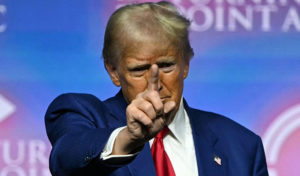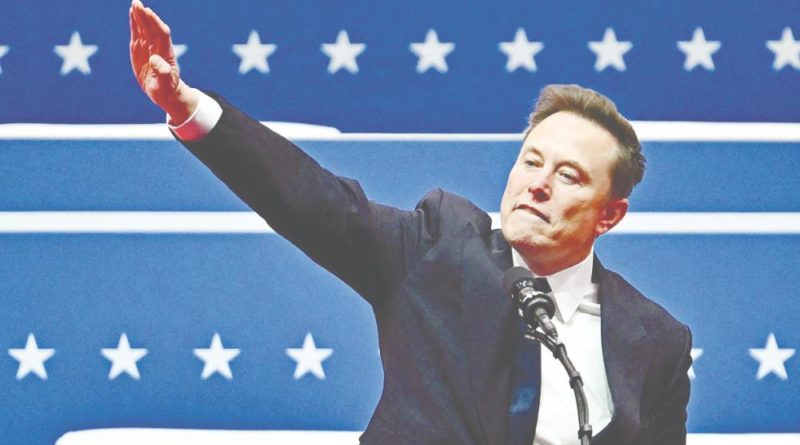OPINION-COLUMN | Musk – unofficial ‘president’ of US and ultimate kingmaker
No longer just a tech mogul, Musk has become the puppet master, pulling the strings behind political narratives.
.
.
.

IN the ever-evolving landscape of global power dynamics, one individual stands tall as the most influential unelected figure in the world – Elon Musk.
The billionaire entrepreneur, known for his ventures in space, electric vehicles and artificial intelligence, has subtly yet powerfully positioned himself as the unofficial “president” of the United States.
His influence extends far beyond technology, shaping political discourse, controlling vast streams of information and even affecting the nation’s financial landscape.

Musk’s acquisition of X (formerly Twitter) has transformed the social media platform into the most crucial tool for political campaigning. No longer just a tech mogul, Musk has become the puppet master, pulling the strings behind political narratives. His control over X allows him to amplify voices, suppress unfavourable opinions and drive trends that dictate public sentiment.
While conventional media outlets scramble to keep up, Musk’s platform remains the go-to battleground for political ideologies, debates and propaganda.
President Donald Trump, never one to shy away from bold declarations, recently coined a new term for Musk: “enforcer-in-chief”. This title
is fitting, given Musk’s unrelenting push to challenge the status quo and influence political discourse.
Whether it be his public spats with government officials, his ability to challenge mainstream narratives or his subtle endorsements, Musk has proven that political influence does not necessarily require holding office.
Musk’s reach is not limited to mere influence. With his extensive portfolio of companies, including X, SpaceX, Tesla and Neuralink, Musk has access to an unprecedented amount of critical data.
From private conversations on X to satellite imagery via Starlink, he holds a treasure trove of information that even intelligence agencies envy.
|
|
His privileged access raises serious questions about national security and governance as he operates beyond the checks and balances of a traditional political leader.
Musk’s ability to sway financial markets, particularly through Dogecoin (DOGE), is another testament to his unparalleled influence.
His cryptic tweets alone can skyrocket or plummet the value of cryptocurrencies, making him a key player in the decentralised financial revolution.
|
|
Moreover, his willingness to expose previous government dealings, especially those concealed under USAID and other bureaucratic entities, has made him a thorn in the side of the establishment.
His revelations have unearthed hidden projects and financial flows that were previously shielded from public scrutiny.
In an era where traditional political leadership is marred by bureaucracy and partisanship, Musk operates with an agility that no elected official can match.
|
|
His decisions impact not just America but
the entire world, whether through technological advancements, geopolitical manoeuvring or financial disruptions.
While he does not hold an official government position, Musk’s influence surpasses that of many world leaders. He is, without a doubt, the most powerful unelected individual on Earth.
Musk’s rise to power is a testament to the shifting nature of influence in the modern world. In a digital era where information, technology and finance dictate political and economic landscapes, Musk has effectively positioned himself as the ultimate kingmaker.
Whether this serves the greater good or paves the way for an era of unchecked corporate dominance remains to be seen. One thing is clear – Musk is no longer just a businessman. He is, in many ways, the unofficial president of the United States.
Rahul Chouhan is an educator at the Narayana Group of Educational Institutes, India. Comments: [email protected]
|
|
















